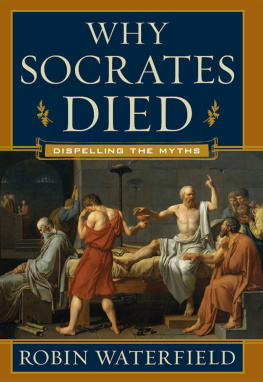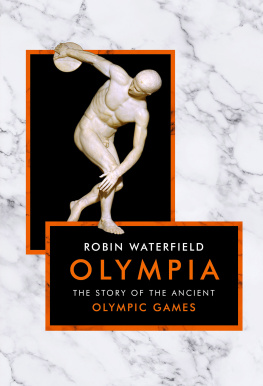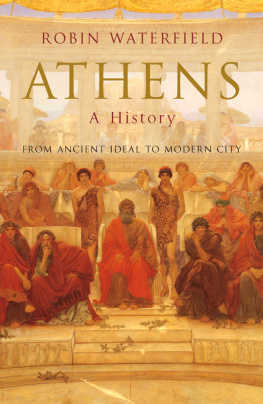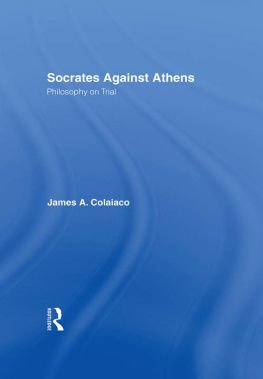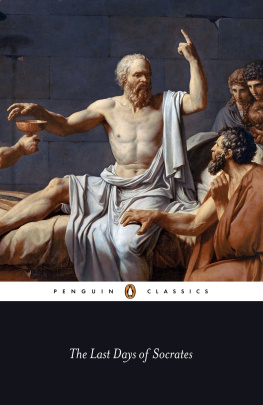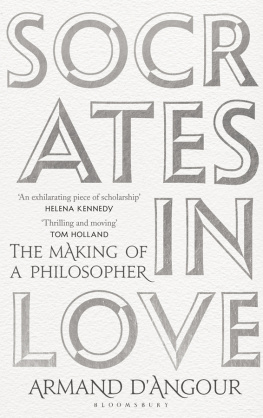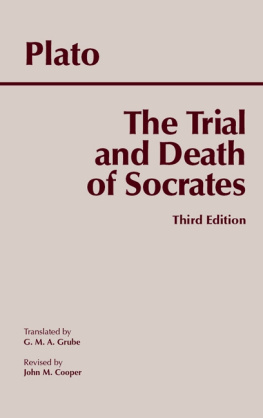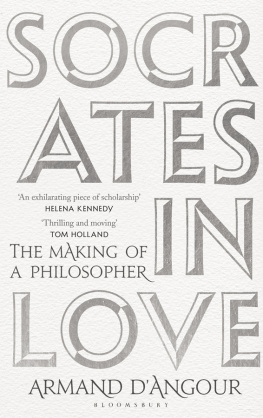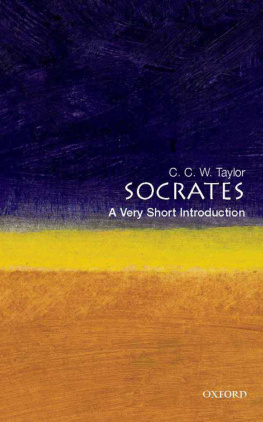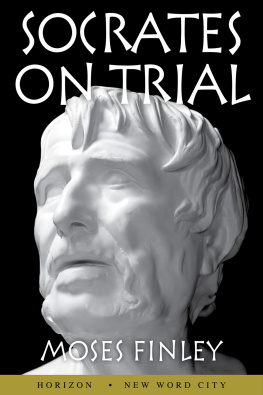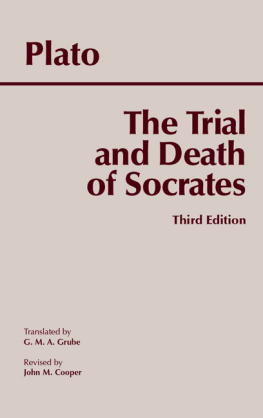Waterfield - Why Socrates died : dispelling the myths
Here you can read online Waterfield - Why Socrates died : dispelling the myths full text of the book (entire story) in english for free. Download pdf and epub, get meaning, cover and reviews about this ebook. year: 2009, publisher: W. W. Norton & Co, genre: Religion. Description of the work, (preface) as well as reviews are available. Best literature library LitArk.com created for fans of good reading and offers a wide selection of genres:
Romance novel
Science fiction
Adventure
Detective
Science
History
Home and family
Prose
Art
Politics
Computer
Non-fiction
Religion
Business
Children
Humor
Choose a favorite category and find really read worthwhile books. Enjoy immersion in the world of imagination, feel the emotions of the characters or learn something new for yourself, make an fascinating discovery.
- Book:Why Socrates died : dispelling the myths
- Author:
- Publisher:W. W. Norton & Co
- Genre:
- Year:2009
- Rating:4 / 5
- Favourites:Add to favourites
- Your mark:
Why Socrates died : dispelling the myths: summary, description and annotation
We offer to read an annotation, description, summary or preface (depends on what the author of the book "Why Socrates died : dispelling the myths" wrote himself). If you haven't found the necessary information about the book — write in the comments, we will try to find it.
Socrates trial and death together form an iconic moment in Western civilization. The picture we have of it - created by his immediate followers and perpetuated in countless works of literature and art ever since - is that a noble man was put to death in a fit of folly by the ancient Athenian democracy. But an icon, an image, is not reality. The trial was, in part, a response to troubled times - a catastrophic war and turbulent social changes - and so provides a good lens through which to explore the history of the period; the historical facts allow us to strip away some of the veneer that has for so long denied us glimpses of the real Socrates. Written by a scholar, but not only for scholars, this is an accessible, authoritative account of one of the defining periods of Western civilization. Read more...
Abstract: Robin Waterfield presents Socrates as a deeply moral thinker whose convictions stood in stark relief to those of his former disciple, Alcibiades, the hawkish and self-serving military leader. Refusing to surrender his beliefs even in the face of death, Socrates was determined to save his native Athens even as the city-state was tearing itself apart and falling into moral decline.
Socrates trial and death together form an iconic moment in Western civilization. The picture we have of it - created by his immediate followers and perpetuated in countless works of literature and art ever since - is that a noble man was put to death in a fit of folly by the ancient Athenian democracy. But an icon, an image, is not reality. The trial was, in part, a response to troubled times - a catastrophic war and turbulent social changes - and so provides a good lens through which to explore the history of the period; the historical facts allow us to strip away some of the veneer that has for so long denied us glimpses of the real Socrates. Written by a scholar, but not only for scholars, this is an accessible, authoritative account of one of the defining periods of Western civilization
Waterfield: author's other books
Who wrote Why Socrates died : dispelling the myths? Find out the surname, the name of the author of the book and a list of all author's works by series.

